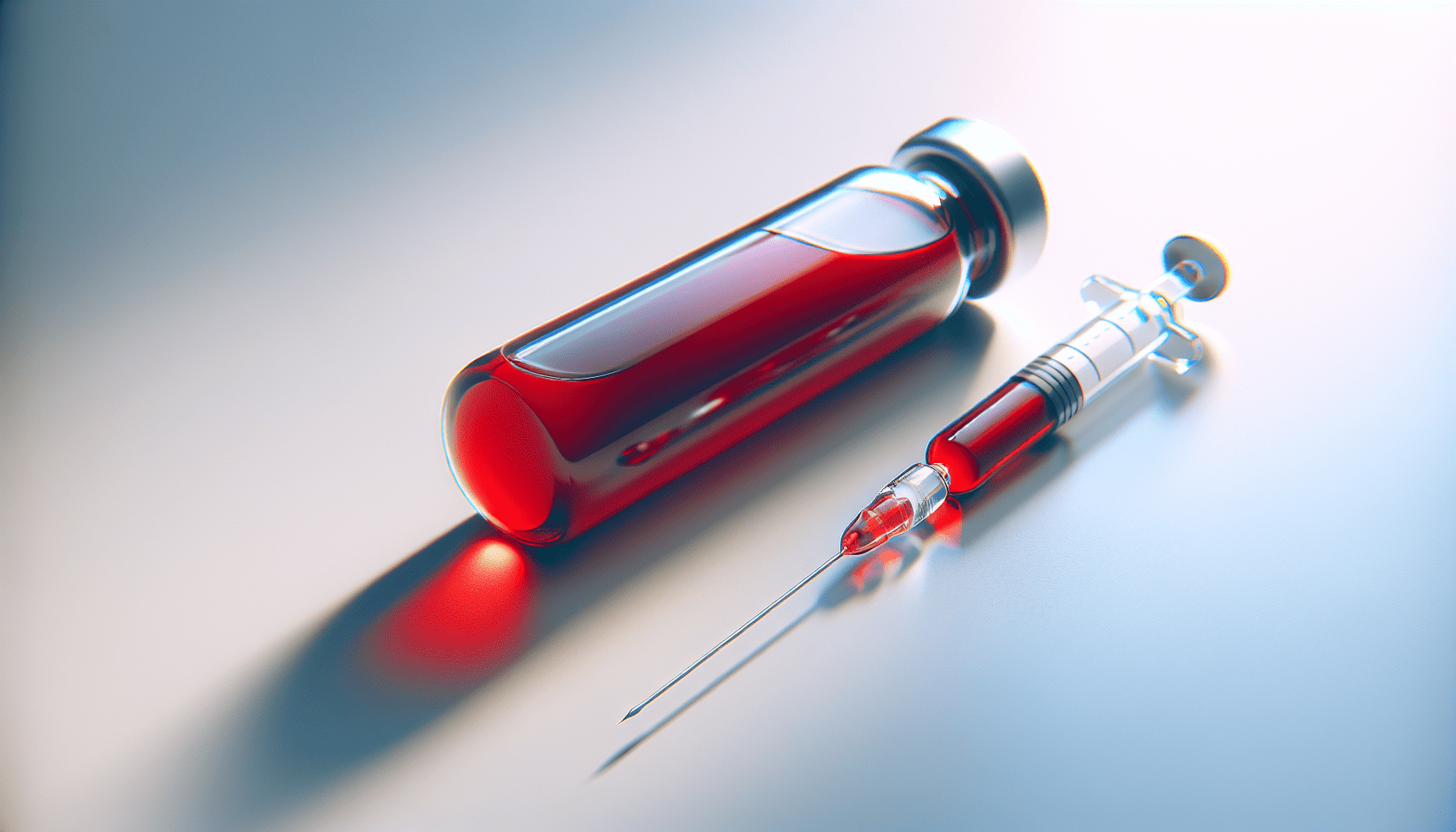Welcome to the fascinating world of advancements in medical technology! Recent studies have shown promising results in using a simple blood test to potentially detect erectile dysfunction. Imagine the convenience of a quick and easy diagnosis, leading to faster and more effective treatment options. This groundbreaking development has the potential to revolutionize the way we approach and manage this common condition. Exciting times are ahead in the field of men’s health, so stay tuned for more updates on this innovative approach to detecting and addressing erectile dysfunction.
Can A Blood Test Detect Erectile Dysfunction?
You may be wondering if a simple blood test can detect erectile dysfunction in men. Well, the answer is not as straightforward as you might think. Let’s delve deeper into this topic to provide you with a clearer understanding.
Understanding Erectile Dysfunction
Before we explore the possibility of using a blood test to detect erectile dysfunction, let’s first understand what this condition is. Erectile dysfunction, also known as impotence, is the inability to achieve or maintain an erection firm enough for sexual intercourse. It can be a frustrating and embarrassing issue for many men, impacting their quality of life and relationships.
Causes of Erectile Dysfunction
There are various reasons why a man may experience erectile dysfunction. Some common causes include:
- Physical factors: such as heart disease, high blood pressure, diabetes, obesity, and hormonal imbalances.
- Psychological factors: including stress, anxiety, depression, and relationship problems.
- Lifestyle factors: such as smoking, excessive alcohol consumption, and drug use.
Diagnosis of Erectile Dysfunction
Diagnosing erectile dysfunction typically involves a physical exam, a review of medical history, and possibly some diagnostic tests. These tests may include:
- Physical exam: Your healthcare provider will examine your genitals and perform a rectal exam to check your prostate.
- Blood tests: These tests can help identify underlying medical conditions that may be contributing to your erectile dysfunction.
- Urinalysis: This test can detect signs of diabetes, kidney disease, and other health issues.
- Ultrasound: An ultrasound can provide a visual image of the blood flow to your penis.
Can A Blood Test Detect Erectile Dysfunction?
Now, let’s circle back to the main question: Can a blood test detect erectile dysfunction? While there is no specific blood test that can definitively diagnose erectile dysfunction, certain blood tests can help identify underlying health issues that may be contributing to the condition. These tests may include:
- Blood glucose test: High blood sugar levels can indicate diabetes, which is a common cause of erectile dysfunction.
- Lipid profile: High levels of cholesterol and triglycerides can contribute to cardiovascular disease, which can impact blood flow to the penis.
- Thyroid function test: An underactive thyroid gland can lead to hormonal imbalances that may affect erectile function.
- Testosterone levels: Low testosterone levels can contribute to erectile dysfunction in some men.
- Complete blood count (CBC): Anemia, a condition characterized by a low red blood cell count, can affect blood flow to the penis.
Interpreting Blood Test Results
It’s essential to note that the results of these blood tests are not definitive indicators of erectile dysfunction on their own. However, if any abnormalities are detected, further evaluation and treatment may be necessary to address the underlying health issues and improve erectile function.
Treatment Options for Erectile Dysfunction
If you have been diagnosed with erectile dysfunction, several treatment options are available to help restore your sexual function. These may include:
- Medications: such as Viagra, Cialis, and Levitra, which help increase blood flow to the penis.
- Therapies: including psychotherapy, vacuum devices, and penile implants.
- Lifestyle changes: such as quitting smoking, reducing alcohol consumption, exercising regularly, and managing stress.
- Surgery: in some cases, surgical procedures may be recommended to improve blood flow to the penis.
Lifestyle Changes to Improve Erectile Function
In addition to seeking medical treatment for erectile dysfunction, making certain lifestyle changes can also help improve your sexual function. Here are some tips to consider:
- Eat a healthy diet: Include plenty of fruits, vegetables, whole grains, and lean proteins in your meals.
- Exercise regularly: Engage in physical activity to improve blood flow and overall cardiovascular health.
- Maintain a healthy weight: Being overweight or obese can contribute to erectile dysfunction.
- Limit alcohol and quit smoking: Both alcohol and tobacco can negatively impact erectile function.
- Manage stress: Practice relaxation techniques, such as deep breathing, meditation, or yoga, to reduce stress levels.
Conclusion
While a blood test alone may not be able to definitively diagnose erectile dysfunction, it can help identify underlying health issues that may be contributing to the condition. If you are experiencing symptoms of erectile dysfunction, it’s essential to consult with your healthcare provider for a proper evaluation and treatment plan. Remember, you are not alone in dealing with this common condition, and there are various treatment options available to help you regain your sexual function and improve your overall quality of life.
